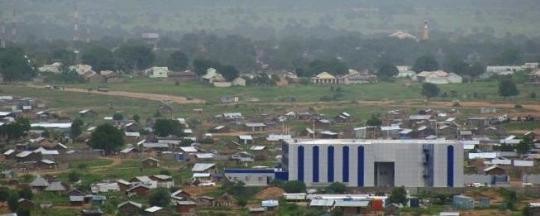A bill to regulate South Sudan’s National Security Service will come up for vote Tuesday after receiving heavy criticism last week.
The bill, meant to regulate South Sudan’s national security service which has been operating without a legal mandate, gives agents broad powers to arrest and detain citizens without warrant or charge.
Article 50 of the bill reads, “An officer or member authorized by the Minister or Director General concerned may, without warrant, arrest any person if such officer or member reasonably suspects that the person to be arrested has committed or is about to commit an offense punishable by law.”
A vote on the bill was delayed until Tuesday after a debate in the national legislative assembly Wednesday, Sudan Tribune reported.
During the debate, chief whip in the national legislative assembly Tulio Odongi Ayaho proposed there must be oversight of the NSS to ensure agents do not commit rights violations.
“I would prefer to add the establishment of internal attorneys, which is an ombudsman or a judge, to observe and follow the issue of human rights and freedom of citizens,” Tulio said, reported Radio Miraya.
“If this can be accommodated, it will allay fears on that line,” the whip continued. “He will check excess of powers; receive public complaints and protection of members in the service itself. It should be installed and imbedded in the bill.”
Tulio said the ombudsman should be answerable only to the minister of national security.
“Absolute powers”
Edmund Yakani, the executive director of the Community Empowerment for Progress Organization, lauded the legislature for not passing the bill without changes, saying that the bill gives “absolute powers” to security agents that “are not in accordance with number of the transitional constitutions articles.”
“CEPO is urging the national parliamentarians to ensure that our votes of April 2010 elections mandated you to foster democratic principles not oppressive principles,” Yakani said.
South Sudanese civil rights activist Elizabeth Deng, a researcher with Amnesty International, also criticized the bill.
“The bill grants the National Security Service virtually unrestricted powers of arrest, search, and seizure and is at odds with South Sudan’s Transitional Constitution and with regional and international human rights law and standards,” said Deng in a press statement. “It should not be passed in its current form.”
“While the National Security Service urgently needs a legal mandate, any law passed must ensure appropriate limits on its powers and provide individuals adequate opportunity for redress,” she continued. “It grants officers immunity from criminal proceedings, opening the door to impunity.”
The United States government urged South Sudan’s government to hold further consultations on the NSS bill because it “appears to curtail due process and is at odds with freedoms enshrined in South Sudan’s Transitional Constitution and international norms.”
“Regulation and codification can be appropriate, but should be done in a manner that preserves freedoms of association, assembly, and speech
and protects civil liberties,” read a statement from the US State Department, which is the American equivalent of a foreign affairs ministry.
Related:
Document: South Sudan’s National Security Bill
File photo: The National Security Service headquarters in Juba, South Sudan
To contact Radio Tamazuj with press releases, comments or information, write to radiotamazuj@gmail.com with full name and contact information.




